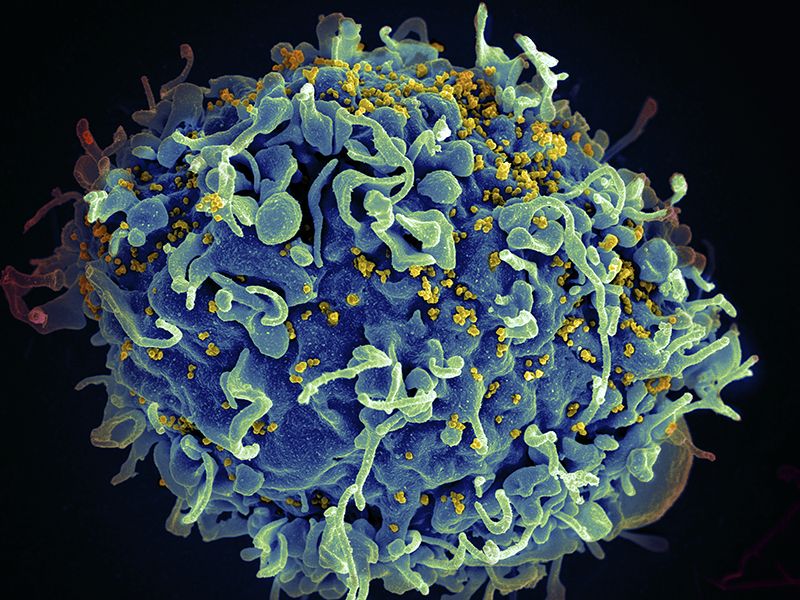Stem cell treatment appears to be giving hope of a potential cure for HIV.
This follows news of a second patient from the UK being declared ‘free’ of HIV after a stem cell transplant.
Doctors say in a publication in Nature that this is only the second time this is happening where the virus is “undetectable” after a cell transplant.
The identity of this latest patient has not been disclosed yet but is said to have stopped “taking antiretroviral drugs, with no sign of the virus returning 18 months later.”
A decade ago another patient called Timothy Ray underwent a similar stem-cell treatment known as the ‘Berlin patient’.
He has been declared free of the virus and still remains so. The latest success story points to a possible outlet for curing HIV.
What the researchers did?
The team that carried out this treatment was led by Ravindra Gupta, an infectious diseases physician at the University of Cambridge, UK.
The team is reported to have “picked a donor who had two copies of a mutation in the CCR5 gene, which gives people resistance to HIV infection.”
According to the team “this gene codes for a receptor” sits on the surface of “white blood cells involved in the body’s immune response.”
Nature reports that Normally, “about 1% of people of European descent have two copies of this mutation and are resistant to HIV infection.”
The team also reported in its work that it “found that the virus completely disappeared from the patient’s blood after the transplant.
After 16 months, the patient stopped taking antiretroviral drugs, the standard treatment for HIV. In the latest follow-up, 18 months after stopping medication, there is still no sign of the virus.”
Reactions to the latest development
A clinical infectious diseases physician at Cardiff University, Andrew Freedman says “There’s good reason to hope that it will have the same result.”
Freedman was referring to the patient being completely free from HIV like the first patient ten years ago.
All the two patients this procedure was used on had a form of blood cancer which was “wasn’t responding to chemotherapy.”
The patients therefore “required a bone-marrow transplant, in which their blood cells would be destroyed and replenished with stem cells transplanted from a healthy donor.”

Ravindra Gupta who led the research however says “it’s not yet possible to say whether the patient has been cured. This can only be demonstrated if the patient’s blood remains HIV-free for longer.”
But Graham Cooke, a clinical researcher at Imperial College London, says not every person with HIV could be successful with such a treatment especially when they don’t have cancer.
He however said the procedure can sometimes have fatal complications. “If you’re well, the risk of having a bone-marrow transplant is far greater than the risk of staying on tablets every day,” he says.
But most HIV patients respond well to daily antiretroviral treatment, something doctors advise must continue.
Source: Africafeeds.com



